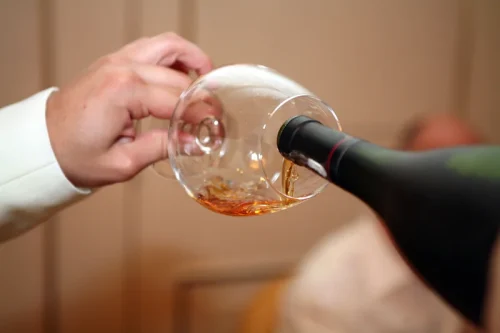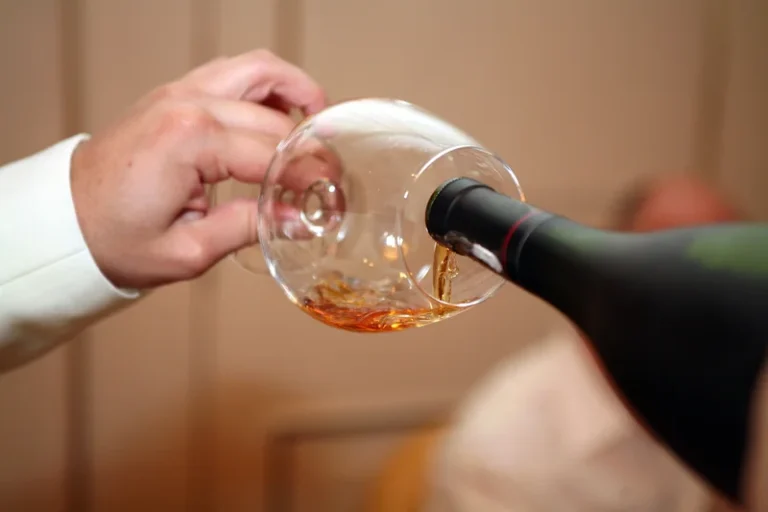Why Do I Get Sneezing Fits When Drinking Alcohol

For someone with allergies who also experiences coughing fits due to environmental triggers (like pollen), consuming these alcoholic beverages could exacerbate their symptoms. Chemicals like sulfites, which are present in beer after fermentation, can also trigger allergic reactions. While beer allergies are rare, alcohol intolerance is a genetic condition found more commonly in people of Asian descent.
Bacterial Vaginosis: What Is, Causes, Symptoms, and Diagnosis

Red wines, for example, tend to have higher levels of histamines than white wine or beer. If you find that drinking these beverages triggers an allergic reaction, then it’s important to limit your intake and switch to lower-histamine alternatives. Another helpful tip is to opt for histamine-low foods, such as fresh fruits and vegetables, or fermented products like yogurt or kefir. These foods can help your body break down the histamines more effectively, reducing the potential for an allergic reaction.
Which Alcohol Has The Most Histamines?
- Allergies are our immune system’s response to an allergen, such as pollen, bee venom, pet dander, or certain drugs or foods.
- Thankfully I was able to go to a medically-assisted detox center but I was still extremely uncomfortable.
- Some individuals are sensitive or allergic to sulfites, which may cause nasal inflammation and congestion.
- There are ways to reduce your sensitivity to histamines, which will help you avoid getting congested after drinking red wine.
- Therefore, limiting or avoiding alcohol is advised to minimize harm to the liver, heart, brain, and gut.
If a person is found to be sensitive to red wine, they may need to avoid it altogether or switch to white wine, which contains a lower concentration of histamine. It is important to note that not all allergic reactions to red wine are caused by histamine. Wine and other alcoholic beverages are generally not considered as potential allergens, so if you think you may have an allergy to wine, it is important to get a proper diagnosis.

When to See a Healthcare Provider
- For some, alcohol intolerance can provoke immediate symptoms such as nasal congestion and skin flushing.
- Grape is the main allergen found in wine, and it is present in both red and white wines.
- If you experience any symptoms after consuming alcohol, it is important to speak to a doctor to ensure your health and safety.
- Hodgkin lymphoma is a blood cancer that can affect a person’s lymphatic system.
People with histamine intolerance have decreased or inhibited enzymes that break down histamine from food. To combat the effects of alcohol Oxford House on your nose and sinuses, you can try OTC nasal sprays such as fluticasone or azelastine. For those with HIT, creating a specialised low-histamine diet can help to reduce the symptoms.
How to Treat the Effects of Drugs on the Respiratory System

One older study in people with asthma found that over 40 percent of participants said that drinking alcohol prompted allergy or allergy-like symptoms. Moreover, the 20-minute rule is linked to the broader concept of mindful drinking, which can assist individuals in cutting back their alcohol intake. It can be especially helpful during occasions where alcohol consumption might increase, acting as a simple yet effective strategy to maintain control.
- If you think you may have developed an allergy to alcohol, it is important to see your doctor for diagnosis and treatment.
- If they are not sure what is causing your symptoms, they might want you to see an allergist, a healthcare provider that specializes in allergies and asthma.
- Researchers believe that this could be due to the sulfites used in producing white wine, as well as the histamines found in white grapes.
- Firstly, some people have lower levels of the enzymes required to break down alcohol, leading to a buildup of byproducts that can trigger a mild allergic reaction.
This genetic condition means that you experience negative symptoms when drinking alcohol because your body is unable to process it properly. Because the body can’t break down alcohol, it’s toxic byproducts flood the system and accumulate with each drink you have. About 83 percent of respondents said red wine triggered nasal symptoms, and 31 percent said the same about white does alcohol cause sneezing wine. To alleviate discomfort, over-the-counter nasal sprays like fluticasone or azelastine can be beneficial.

How Long Does Screw Top Red Wine Last Once Opened?

Allergic reactions to alcohol can cause symptoms such as difficulty breathing, coughing, a runny nose, or stomach upset. One of the most common forms of alcohol intolerance is sulfite intolerance. This type of allergy occurs when an individual cannot break down sulfites, which are a byproduct of fermentation and appear in wine and other alcoholic beverages. Symptoms may include hives, swelling, difficulty breathing, headaches, nausea and vomiting. For those with severe allergies or asthma, sulfite intolerance can be life-threatening.